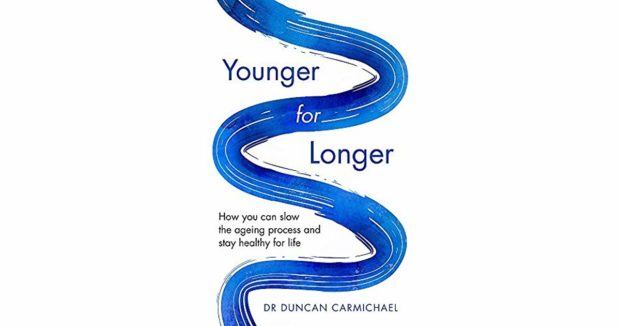Digestive enzymes. You have heard about them, but perhaps you are not quite sure what they do and how they work. And do they work?
Many of us tend to gulp our food down instead of chewing it. The quicker we swallow, the quicker we can get back to that busy agenda. If I compare this to another mammal – the cow, for instance, she will happily chew for up to 8 hours a day! If nature has deemed that a cow understands the importance of digestion then perhaps we should slow down and pay some attention to this fascinating process.
How Does Digestion Work?
Digestion is the art of taking our three food groups (protein, carbohydrates, and fats) and breaking them into such tiny particles. This is done so that they can easily be absorbed into the bloodstream. The first important step in this process is chewing – the longer we grind food between our teeth, the more it breaks the food into small particles. In addition, the mouth releases enzymes like amylase that break carbohydrates like bread, fruit, and vegetables into even smaller pieces.

The stomach is the next stop for whatever food we have swallowed. Here, it releases HCL (hydrochloric acid) that breaks down meat in an acid bath, pepsin (an enzyme that breaks down meat), and rennin (an enzyme that breaks down milk).
Digestive Enzymes Help Absorb Vitamins
The acid will also kill any nasty bacteria that might have come in with the meat. The stronger our stomach acid, the less chance we have of picking up a tummy bug from iffy chicken breasts. These enzymes also help folate and vitamin B12 to be absorbed into the body.
The bubbling mass of food and digestive juices is then expelled into the first part of the intestine called the duodenum. Here the stomach acid stimulates the pancreas to release the enzyme lipase to digest fats, plus a second dose of amylase to further dissolve the vegetables. This amylase also helps minerals like calcium and magnesium be absorbed into the body. Finally, the flora in the small intestine and then the E. coli bacteria in the large intestine break down whatever food has escaped the attention of our teeth, the acids, and the digestive enzymes.
Digestive Enzymes As We Age
We can see that digestion is not just a matter of gulping down some food and forgetting about it. Rather, it is a complicated mechanism requiring an orchestra of enzymes to break and pulp the food into micro-units that we can successfully absorb. If we are stressed, rushed, or just getting older, this entire process can be compromised, leaving us susceptible to thinning bones, exhaustion, weight problems, and even diabetes (1).

As we age and our digestive enzymes fade, the first thing we may notice is abdominal bloating, pain, and problems with gas. These are symptoms that most people occasionally suffer from. However, if bloating after a meal persists then you may want to look at the benefits of supporting your digestive enzymes.
How to Support your Digestive Enzymes
The first thing to consider is slowing down and chewing. It doesn’t need to be as studious as the mastication of a cow. Just 10 to 20 chews per mouthful will emotionally slow us down, help with grinding the food down, release the amylase enzyme from the mouth and start to release acid from the stomach.
The next suggestion is to consider adding hydrochloric acid (HCL) to each meal. This helps the acids in the stomach to break down the meat. Thus, if you are deficient in HCL, you will notice less abdominal discomfort and less gas. In addition, good acid levels kill off excess bacterial flora in the small intestine, preventing a condition called SIBO (small intestinal bacterial overgrowth). If, after swallowing HCL, you get a feeling of reflux acid in the throat, then you are taking too much and should reduce your HCL dose.

Why Bromelain is a wonderful alternative
If HCL causes a feeling of reflux, but you still have trouble digesting meat, then there is a wonderful alternative called Bromelain. This is an extract from pineapple and is one of my favorite supplements. Apart from assisting stomach acids, Bromelain has multiple benefits in the body:
- In the lungs, it reduces any allergic response and so reduces mucous production, and improves asthma symptoms.
- It thins the blood and prevents clots from forming. Arterial plaques that cause heart attacks may be reduced.
- It helps to remove cancerous cells and so is a useful supplement for anyone with cancer [2].
Bromelain thins the blood, it should not be taken if you are already on blood thinners.
Should You Drink Water With Your Meal?
There is a lot of discussion about whether water with a meal affects our ability to digest food. The short answer is that excessive water with a meal may impede digestion slightly. There are two reasons for this: firstly, drinking water while we are eating in a rush allows us to swallow food without first properly chewing it. This effectively reduces the digestive process. Secondly, drinking a glass of water on an empty stomach can mildly reduce the acidity in the stomach for just a few minutes[3]. With this in mind, there is nothing wrong with just sipping water during a meal.
Will Wine Help You Digest Your Meal?
Many people think that drinking wine with a meal benefits digestion. Sadly, there is very little evidence to support this. The only benefit that I could find is that red wine drunk with a steak meal reduces some damaging oxidized fats from the cooked meat [4].
Which Digestive Enzymes Are Best?
Companies like Metagenics and Solgar have very useful combinations of good quality digestive enzymes. They both have a combination of Amylase (for carbohydrates) lipase (for fats) and proteases (for proteins). These are gentle supplements with very little chance of side effects and cover all bases of digestion. You should notice an improvement in bloating, gas, and energy.
Probiotic Support
Don’t forget the flora that occupy the small intestine and that not only protects us from nasty bacterial infections but are also our final weapon in digesting food. Adding a probiotic from a reputable company should reduce feelings of bloating.
Finally, if you still have to bloat, consider that you might be intolerant to a particular food. Consider cutting out the usual offenders of gluten (bread, biscuits, pasta) and dairy (milk and cheese) to see if that reduces feelings of bloating.
Conclusion
The digestive process is a beautifully complicated orchestration of chewing, acid, enzymes, and friendly bacteria. It is amazing that we are able to digest such a wide variety of foods into small particles that can pass into our bloodstream. Without the ability to digest, we wouldn’t be alive and as we age, worsening digestion contributes to worsening health. For optimal health, we should all embrace relaxed, mindful eating and chewing our food properly. The addition of HCL, Bromelain, the combination of digestive enzymes and probiotics, all have a place in successful digestion.
Who is the author?
Dr. Duncan Carmichael is a medical doctor with twenty-five years of experience in the profession. He is a regular speaker and lecturer at conferences on aesthetics and aging, in his home country and abroad.
Dr. Duncan Carmichael is also the founder of the Institute for Healthy Aging in Cape Town, South Africa, and another in Dorset in the United Kingdom. Furthermore, he is also the author of the book Younger for Longer, which is the culmination of a twenty-five-year quest to inform and share his experience and knowledge. His book is for sale at leading online book stores like Amazon.



![women [longevity live]](https://longevitylive.com/wp-content/uploads/2020/01/photo-of-women-walking-down-the-street-1116984-100x100.jpg)










